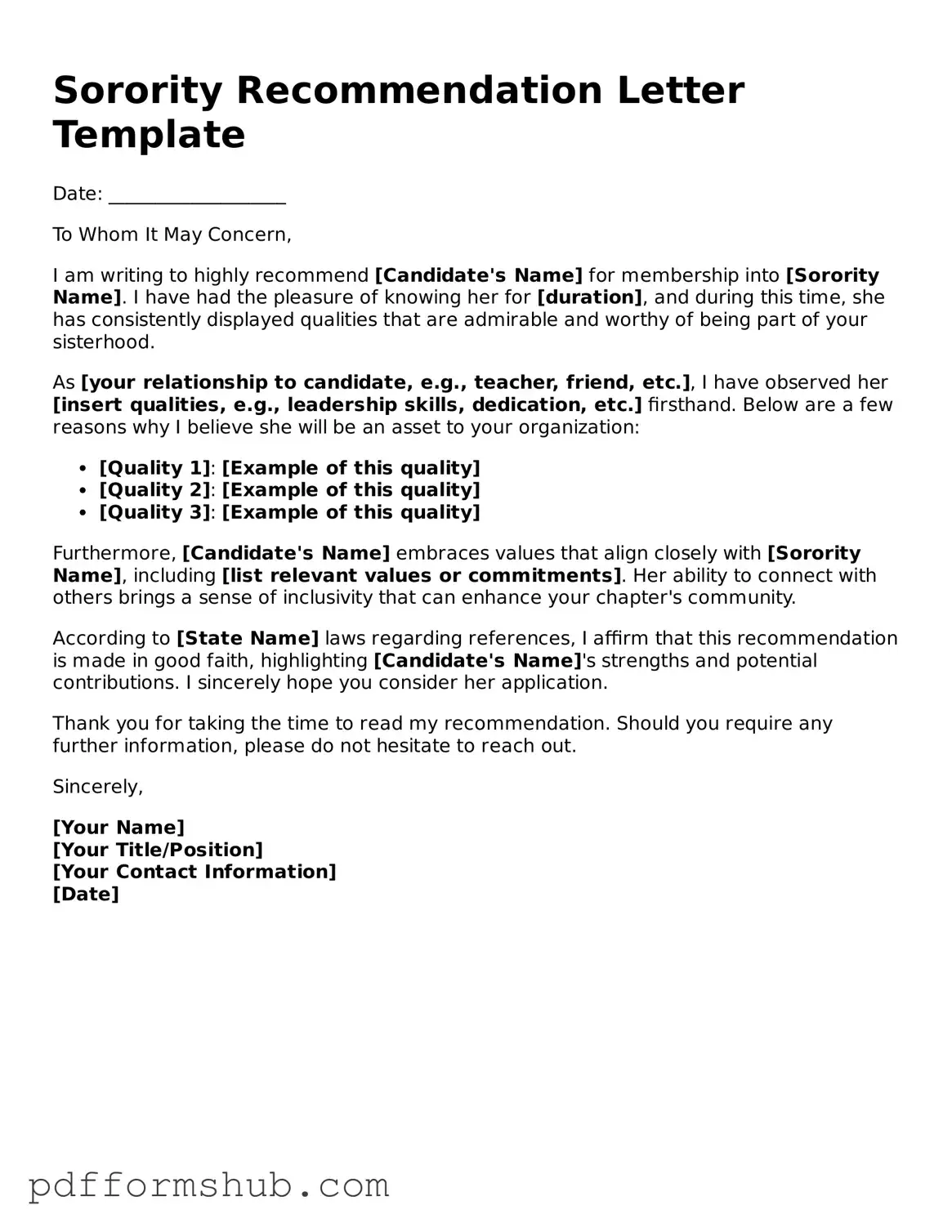Valid Sorority Recommendation Letter Form
The Sorority Recommendation Letter form is a document that supports a potential member's application to a sorority. This form provides insights into the candidate's character, achievements, and suitability for membership. Completing this form can significantly enhance the chances of a successful sorority bid, so be sure to fill it out by clicking the button below.
Customize Form

Valid Sorority Recommendation Letter Form
Customize Form

Customize Form
or
Free PDF Form
Short deadline? Complete this form now
Complete Sorority Recommendation Letter online without printing hassles.